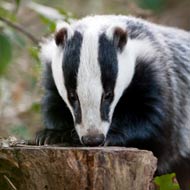Badger vaccination suspended in Wales

Production of the Badger BCG vaccine has been halted until further notice.
The Welsh Government has suspended its badger vaccination project for 2016 due to a global shortage of the BCG vaccine.
In response to the shortage, the World Health Organisation is urging all countries to review their BCG usage, to ensure the countries with the highest rates of human TB take priority.
SSI, the company that produces Badger BCG, says it will not produce any more until further notice, due to a backlog in production of the human vaccine.
If Wales were to continue its badger vaccination programme, it would have to source human BCG for use on badgers.
In light of the global shortage and that fact that one badger vaccine equals 10 human adult doses or 20 human infant doses, the government has decided to suspend the project until the vaccine supply for humans is adequate.
President of BVA's Welsh branch, Neil Paton, said: "This is disappointing news and will be a significant blow to the bovine tuberculosis (bTB) eradication programme in Wales. However, it is clear that the One Health and human health agenda should take priority in this case.
"We urge Welsh Government to reconsider its eradication programme as a matter of urgency, particularly in relation to wildlife control."
Wales is four years into a five-year vaccination programme in the intensive action area (IAA) and two years into private vaccination grants. However, the Welsh deputy minister for farming and food, Rebecca Evans, said "this does not mean that the hard work of the previous years will have been wasted".
She continued: "Vaccination is far from the only tool in our armoury in our efforts to eradicate bovine TB. We have increased focus on epidemiology and are identifying patterns of disease in Wales.
"We have developed a TB dashboard to present TB data clearly, introduced informed purchasing polices, and are monitoring the profile of disease in wildlife through our Badger Found Dead survey."
Modelling work has also been commissioned to investigate the potential impact of the changes on the IAA vaccination project.



 The latest
The latest